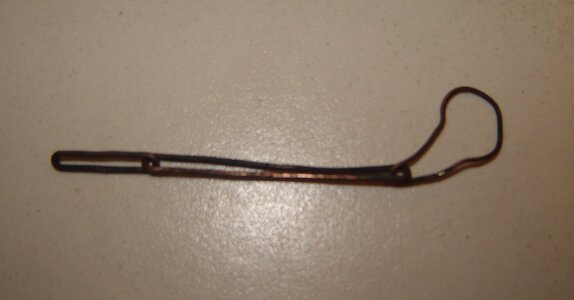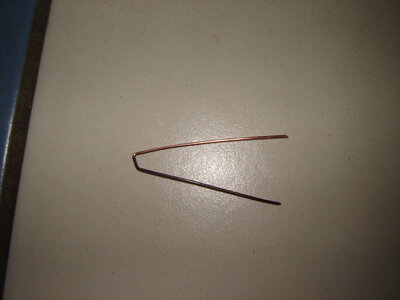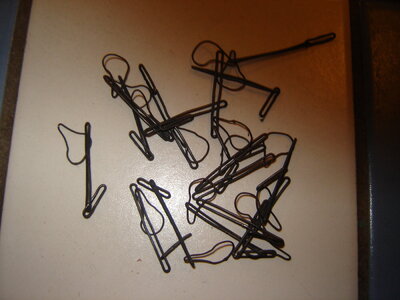I'm having trouble with blackening. It comes out blotchy. I'm using Birchwood "Super Blue" on copper wire, I couldn't get "Brass Black". To clean the copper I used the pickling solution from silver soldering. The wire is nice and coppery clean when I put it in the Super blue but some parts take the black really well and others don't. I didn't use acetone to clean it as some recommend as I assumed the acid in the pickle would do a good job. Has anyone else had this problem? The copper wire was plastic insulated and I stripped that off. Do you think it's possible that some plastic residue stuck on the wire and the acid didn't clean it? It kind of looks like the parts that didn't take the black are the parts that didn't get heated in the soldering process. Any clues please?










